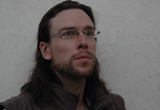 Fluttering, close enough to touch almost, or soaring and swooping high overhead, dozens of brightly coloured kites fleck the square of late afternoon sky above me. Beyond, the snow-capped mountain peaks surrounding the city are just visible above the concrete walls that surround our building. From outside the MSF compound comes the knock and cheering of a cricket match, the pop of distant gunfire (a celebration, I am assured), a reedy flute, and the sound of tabla music swaying and surging in the breeze, before the amplified call to prayer echoes through the streets of Quetta.
Fluttering, close enough to touch almost, or soaring and swooping high overhead, dozens of brightly coloured kites fleck the square of late afternoon sky above me. Beyond, the snow-capped mountain peaks surrounding the city are just visible above the concrete walls that surround our building. From outside the MSF compound comes the knock and cheering of a cricket match, the pop of distant gunfire (a celebration, I am assured), a reedy flute, and the sound of tabla music swaying and surging in the breeze, before the amplified call to prayer echoes through the streets of Quetta.
Roof-top, sky, and sound-scapes have been almost my only glimpses of Pakistan since I arrived last week. Security restrictions confine me indoors: home, hospital, or MSF offices. I cannot go to the market. To obtain foodstuffs, toiletries, or clothing I can write a shopping list and hope that a member of the local staff has time and that they can understand my requests. I cannot go out for a walk: even to cross the street between the MSF office and the house in which we live I am accompanied by a guard. My only other window on the world exists during the journey between the MSF compound and the paediatric hospital where I work. Again, security considerations determine travel times, modes of transport, and routes, with the security officer kept informed of our movements and locations at all times.
Insecure environments are almost written into the MSF mandate. Providing medical aid where it is most needed will often mean working in conflict or post-conflict situations, or unstable environments where an inherent risk is apparent. Security here gains a significance beyond its more familiar relation to social media website settings, password protections, air travel baggage restrictions, or warnings about leaving luggage unattended. Assessing and adhering to security briefings, plans, and protocols has become a major part of my daily activity and a significant determinant of how I live.
How then to manage the new limitations upon my personal freedoms? The seven other expatriate staff already here have established collective coping strategies: evening meals together, card games and movie nights, Nintendo Wii tennis tournaments, and regular weekends of rest in the capital Islamabad. Alongside these, my personal methods of distracting myself and making the most of opportunities that exist will no doubt evolve over time. I anticipate getting through the pile of novels that I packed at the expense of clothing (a questionable decision considering that it has been below zero at night), exercising (I brought a skipping rope), communicating with family and friends back home (the internet connection here is pretty good), and writing a blog, which will maybe prove cathartic.
Ultimately too I will need to find meaning in my experiences. That meaning might be greater empathy with those who are house bound or confined to hospital beds through illness or infirmity. It might be that I gain a better understanding of those who are excluded by social or cultural prohibition (recognising that in the fleeting glimpses of street life en route to the hospital I have seen only men and no women). I hope also that I will not take for granted the freedoms that I will enjoy once again when I leave here; whether taking a walk, or flying a kite.
Read more about safety and security in MSF here.
Andrew Moscrop qualified as a GP last year and will be working with MSF in Pakistan for six months.
